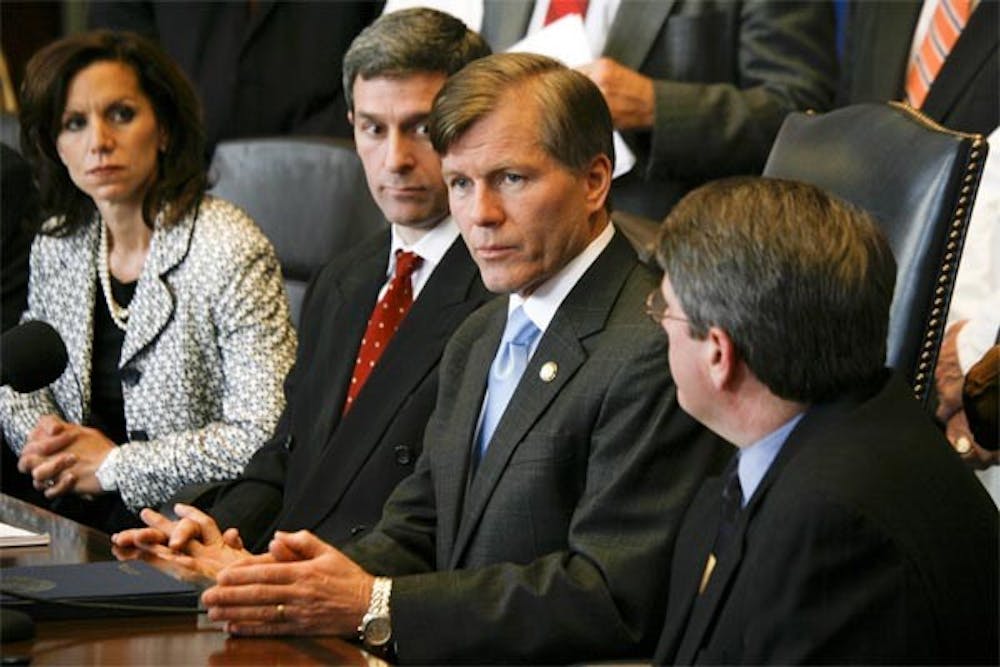Virginia Gov. Bob McDonnell will likely not call a special session of the Virginia General Assembly to formulate a state-based health insurance exchange despite requests from state legislators.
The General Assembly in 2011 approved a bill requiring the commonwealth to create and operate its own health benefits exchange to “preserve and enhance competition in the health insurance market.”
The plan for the state-exchange program would meet the federal requirements established in the Patient Protection and Affordable Care Act.
U.S. Secretary of Health and Human Services Kathleen Sebelius earlier this month sent letters to state governors granting them an additional month to submit a plan for their health insurance exchanges. States now have until Dec. 14 of this year.
The governor, however, did not deem it necessary to call an additional meeting before the General Assembly reconvenes Jan. 9, when Sebelius’ deadline will already have passed.
“Governor McDonnell believes there’s absolutely no need for a special session,” McDonnell Deputy Press Secretary Paul Logan said. “More importantly, the states are waiting for additional guidelines and we’re hopeful that we’ll have that [in a few weeks].”
McDonnell recently indicated the state may resort to a federal exchange because of what he is concerned is a lack of information given about the Patient Protection and Affordable Care Act. The governor’s office has requested additional data about the federal health program’s effects on the Commonwealth’s already strained finances.
“The governor has sent numerous emails to Secretary Sebelius but hasn’t yet felt like he’s received an adequate response,” Logan said.
Legislators are unsure about how to fund the program, regardless of its state or federal exchange status. On top of costs for Medicaid and additional, state-funded health provisions, some governors have questions about whether state governments can sustain additional costs.
“We don’t know exactly what it will cost Virginia,” Logan said.
State Sen. R. Creigh Deeds, D-Charlottesville, said legislators who favor the state-based exchange called for the special session to develop a plan designed for Virginians’ specific needs, in contrast with the more generalized federal exchange.
“The reason why it makes sense for us to have a state exchange is we’re making rules that are affecting our doctors,” Deeds said. “If we don’t have a state exchange we’re going to be stuck in a one-size fits all program, and it just makes more sense for us if we’re going to have any control at all to have a state exchange.”
Logan said the state’s decision will comply with the Patient Protect and Affordable Care Act regardless of the route it decides to take.
The deadline extension will not affect the plan’s implementation timeline. The Department of Health and Human Services is required by law to ensure each state is ready to open an exchange by 2014.
“Consumers in all fifty states and the District of Columbia will have access to insurance through these new marketplaces on January 1, 2014, as scheduled, with no delays,” Sebelius said in her letter to state governors.







